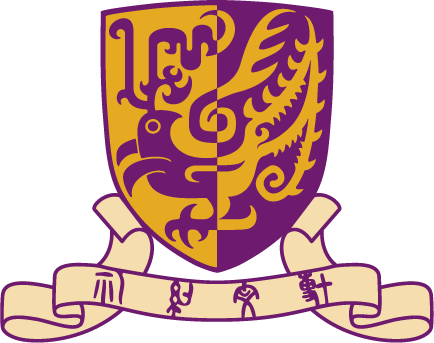(For the FNSC-coded courses only)
FNSC2003 Food, Nutrition and Health (Prerequisite: BCHE2030 and BIOL2120)
(Lecture: 2 Unit; 2nd term)
This course provides an overview of various topics in food science and technology and basic concepts of nutritional sciences. Lectures will include discussions of general areas of interest chosen to stimulate and foster students’ interest in both food and nutritional sciences. This course will cover topics like basic food science and technology, and application of the principles of nutrition in everyday life. Students will also be able to identify some common local food-related problems and the role of nutrition in prevention and therapy.
FNSC3010 Nutrition & Human Development & Laboratory (FNSC3011)
(Lecture: 3 Units; Laboratory: 1 Unit; 2nd term)
This course will introduce students to the study of human growth, development, nutrition and health. Particular reference will be made to dietary needs for growth and development and the importance of establishing healthy eating patterns. It includes coverage of pre-natal development, maternal nutrition, infant growth and infant feeding, growth and nutrition in childhood and adolescence, nutrition in the middle years, and aging and nutrition.
FNSC3030 Nutritional Biochemistry & Laboratory (FNSC3031)
(Lecture: 3 Units; Laboratory: 1 Unit; 1st term)
This component will provide students with the background required to appreciate the biochemical aspects of nutrition and the impact of nutrition-related factors on normal human biochemistry. Areas covered include the digestion and absorption of nutrients, energy intake and expenditure, nutrition and metabolism of carbohydrate, cholesterol haemostasis, metabolism of dietary fats and their effect on lipoprotein cholesterol, nitrogen metabolism, and minerals and vitamins and their roles in biochemical processes.
FNSC3110 Food Chemistry & Analysis & Laboratory (FNSC3111)
(Lecture: 3 Units; Laboratory: 1 Unit; 1st term)
This course will cover the basic chemical and analytical aspects of major food components (water, carbohydrates, lipids and proteins) and minor food components (vitamins, minerals, pigments and food additives including flavors, colorants and preservatives). Emphasis will be made on the chemical reactions and changes in these food constituents during processing, handling and storage. The principles and applications of chemical and instrumental analysis of food will also be discussed.
FNSC4110 Food Technology & Laboratory (FNSC4111)
(Lecture: 3 Units; Laboratory: 1 Unit; 2nd term)
In this course, students will examine the principles behind food processing technology, including various conventional equipment used and its effects on the sensory, microbiological and nutritional quality of a range of foods e.g. meats, vegetables, fruits, etc. Topics may also include food packaging, food processing and waste management, etc., and basic principles of food engineering.
FNSC4120 Community Nutrition & Laboratory (FNSC4121)
(Lecture: 3 Units; Laboratory: 1 Unit; 1st term)
Community nutrition recognizes that the control and prevention of nutrition problems are not merely biomedical in nature, but are embedded in the community of the affected individuals. A community nutritionist accesses and monitors not only physiological and dietary, but also social, cultural, technological and psychological information from many sources to determine needs and identify opportunities for sound, appropriate interventions that improve nutritional health. Because well-conceived nutrition surveys are basic tools for prioristising problems and deciding program plans and evaluations to provide better nutrition services to the public, the course will first introduce community nutrition survey design to the students. Making healthier choices, however, requires lifelong change in thinking and action at both individual and community levels. The rest of the course examines applications of current individual and group nutritional behavior change theories to promote healthier diets.
FNSC4150 Introduction to Medical Nutrition Therapy & Laboratory (FNSC4151)
(Lecture: 3 Units; Laboratory: 1 Unit; 1st term)
This component will introduce the aetiology and dietary management of selected diet-related diseases including obesity; anorexia and other eating disorders; diabetes mellitus; cardiovascular disease including hyperlipidaemias; diseases of the alimentary canal, liver, kidney and gall bladder; gout; cancer; panceratitis and food allergies. It will also cover nutritional concern for AIDS patients and the interaction of drugs and nutrition. Medical nutrition therapy examines the theory behind the treatment of disease with the help of diet. The related applied aspects of dietetics, including the practical skills associated with the preparation, use and evaluation of special diets, and the development of interview and communication skills, will also be covered.
FNSC4160 Nutrition Planning and Food Policy & Laboratory (FNSC4161)
(Lecture: 3 Units; Laboratory: 1 Unit; 2nd term)
This course will explore the historical emergence of food and nutrition policies from their multisectoral agricultural, population, health, environmental, economic, technological, and political origins. The class will investigate case studies from the international arena, but focus on Asian regional food and nutrition policy developments. Because nutrition promotion to the public is an integral component of these policies, a final portion of this course is devoted to the design of effective nutrition promotion and communication strategies for specific groups, including needs assessment, planning, implementation and evaluation.
FNSC4170 Food Product Development and Quality Control & Laboratory (FNSC4171)
(Lecture: 3 Units; Laboratory: 2 Unit; 1st term)
This course explores various stages of food product development, and the importance of quality assurance. Topics include idea development, taste-paneling, shelf life, packaging, production, costing procedures, market research and advertising, commercialization, food ingredient functionality, food product optimization, food regulations, the ISO 9000 series of standards, HACCP, etc.
FNSC4180 Food Microbiology & Laboratory (FNSC4181)
(Lecture: 3 Units; Laboratory: 1 Unit; 2nd term)
This course considers the microorganisms in food safety, spoilage, and production. Topics discussed include food-borne disease agents and their control, food sanitation and hygiene, growth parameters of food spoilage agents, destruction of microbes in food, food fermentations, and the biotechnology of microbes as a resource for the food industry. The principles and practices of modern and rapid analytical methods for monitoring microbiological qualities of foods will also be discussed.
FNSC5130 Human Physiology
(Lecture: 3 Units; 1st term)
This course focuses on the physiology in human beings. Students are provided with the current understanding of the mechanism behind each of the major human systems with emphasis on their relationship with food and nutrition. Systems which will be covered in this course include digestive, nervous, sensory, respiratory, endocrine, cardiovascular and renal ones. After taking this course, students are expected to be knowledgeable in the operations of the major human physiological systems and in the application of them in their daily life.
FNSC5320 Nutritional Physiology
(Lecture: 3 Units; 2nd term)
In this course, the physiological aspects of nutrition will be introduced. The course covers how nutrients may affect human physiologically in an organ-specific manner. Malnutrition can be interpreted as over- or under-nutrition. Together with the basic understanding of human anatomy and physiology, the pathophysiological impact of malnourishment will be discussed. Gastrointestinal, renal, cardiovascular, respiratory and endocrine systems will be covered.
FNSC 5430 Food Toxicology and Safety
(Lecture: 3 Units; 2nd term)
Food can be contaminated with naturally occurring toxicants and/or man-made chemicals that have adverse health effects to humans at any stage of its production and handling. The objective of this course is to gain knowledge on the key concepts and principles of food toxicology and safety. Students are expected to develop an understanding of the nature and properties of the toxic substances in foods as well as the nature and magnitude of the hazard they represent to humans, with the aim of preventing health risks due to food intake. Topics on food toxicology include its general principles, biochemical and physiological mechanisms of action of food toxicants, and methods for food safety assessment. Topics on food safety include food poisoning, food legislation, and food safety control systems. Emphasis will be placed on the evaluation of current issues in food safety toxicology including risk assessment and management.
FNSC4901 Senior Experimental Project I
(STOT: 2 Units; Summer term)
In this course, students carry out an independent laboratory research project either provided by the supervisor or jointly decided with the student. To fulfill the course requirement, students are required to discuss their progress with their supervisors regularly and submit a research proposal.
FNSC4902 Senior Experimental Project II (Pre-requisite: FNSC4901)
(STOT: 2 Units; 1st term)
In this course, students continue to work on the research project from FNSC4901 or freshly start a new research project. Students are required to discuss their progress with their supervisor(s) regularly and submit a progress report at the end of the term. The report is assessed for performance. Students must take FNSC4903 in 2nd term.
FNSC4903 Senior Experimental Project III (Pre-requisite: FNSC4902)
(STOT: 2 Units; 2nd term)
In this course, students continue to work on and finish up the research project from FNSC4902. Relevant data analysis and conclusion formulation are performed after discussion with supervisors. A final report in the form of a manuscript and an oral presentation are assessed at the end of the term for assessment.
FNSC4904 Senior Literature Research
(STOT: 2 Units; 2nd term)
Students as a group discuss regularly with a supervisor and conduct a literature survey on the specific topic provided by the supervisor. An individual written report in the form of a review paper on the selected topic will be assessed at the end of term.
FNSC4906 Internship
(STOT: 2 Units; Summer term)
In this course, students have the opportunity to gain practical experience working in relative companies or organizations. Internship projects can be held either locally or overseas, and must be approved by the programme. Students are required to serve at least 160 hours and submit a written report for assessment.



